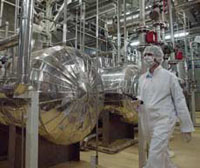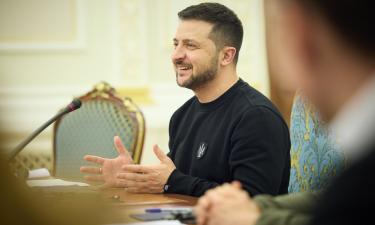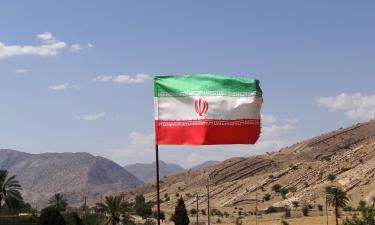Iran resumes its nuclear activities to blackmail the West
Iran resumed its nuclear activities on the same day this week that six world powers offered it incentives aimed at encouraging the complete suspension of the nuclear work.

Iran was offered the following incentives:
1. Iran was allowed to buy spare parts for civilian aircraft made by US manufacturers.
2. Restrictions were lifted on the use of US technology in agriculture.
3. Iran was offered a provision of light water nuclear reactors and enriched fuel.
4. The Six powers gave support for Iranian membership of World Trade Organization.
However despite these incentives Iran restarted the pouring of a raw form of uranium into a set of 164 centrifuge machines to produce enriched uranium, said the IAEA, the nuclear monitoring agency based in Vienna.
Iran gave no official explanations to its step, but there are two main assumptions why Iran did it.
1. Iran wanted to underscore its often stated determination not to be bullied into accepting any deal requiring it to end activities related to uranium enrichment.
2. The decision also could be intended to win more concessions from the United States, Russia, China, France, Britain and Germany, which proposed the incentives package.
The revelation is likely to stiffen the resolve of the United States and the Europeans in particular that a complete freeze of uranium enrichment and reprocessing activities is a condition for formal negotiations.
In April, Iran succeeded in enriching uranium to the low levels needed to fuel a nuclear reactor. Later that month, without explanation, it stopped introducing the raw form of uranium into the fast-spinning centrifuge machines that concentrate uranium into material that can fuel nuclear reactors or bombs. The empty machines continued to run, which is necessary to prevent them from wobbling and crashing.
Iran has continued to enrich uranium in two test centrifuges, so there was never a total halt, the agency report said, and Iran is continuing to build two more 164-centrifuge networks as part of its long-term plan to enrich more uranium, The New York Times reports.
There is no deadline for a response to the offer, but Western diplomats have said they expect Iran to answer in weeks not months and Iranian officials are expected to work hard to win their position. Iranian President Mahmoud Ahmadinejad will meet next week with Chinese President Hu Jintao, whose government is one of the six that presented the offer to Iran.
Diplomats and experts agree that the biggest task will be to satisfy the parties on the issue of enrichment. Iran has said it will not give up its right as a signatory of the Nuclear Nonproliferation Treaty to pursue atomic technology for peaceful purposes.
"Uranium enrichment may be the sticking issue…. How to deal with it is absolutely critical," said a senior diplomat in Vienna. "You have to find a face-saving formula for the Iranians and Americans."
British Prime Minister Tony Blair said Thursday that Iran would cause "a lot of difficulty" if it refused to suspend uranium enrichment, according to The Los Angeles Times.
Source: agencies
Prepared by Alexander Timoshik
Pravda.ru
Discuss this article on Pravda.ru English Forum
Subscribe to Pravda.Ru Telegram channel, Facebook, RSS!




